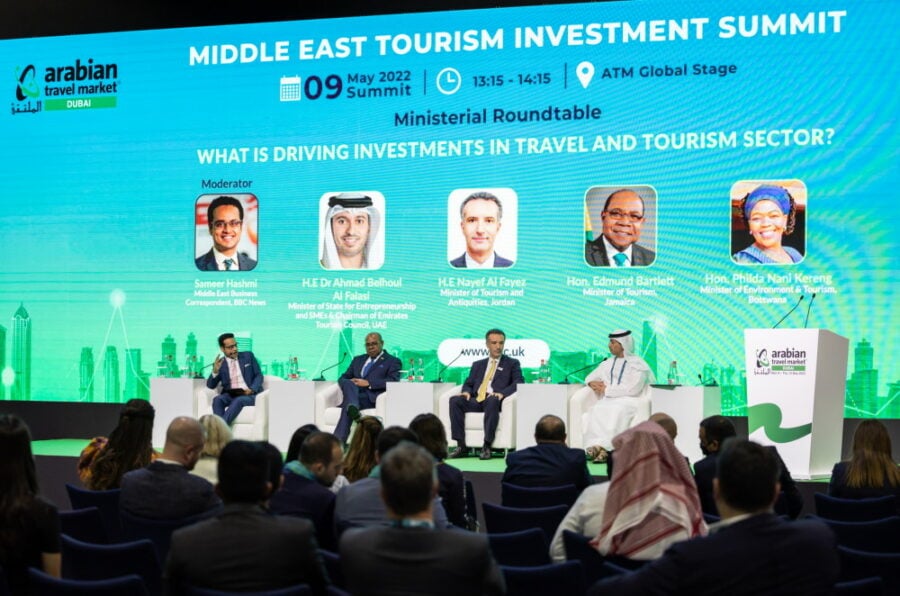The 2022 Arabian Travel Market (ATM) forecasted Middle East’s travel and tourism sector is expected to generate $246 billion of revenue in 2022, which is only 8.9 percent behind pre-pandemic levels.
Global ministers of tourism convened at the Summit in Dubai to shine a spotlight on access to project finance in the post-Covid-19 era and discuss investment opportunities and challenges for destination tourism in the region.
Tourism destinations in the Middle East are expanding their appeal and extending their offerings to attract foreign direct investments (FDI).
Governments across the region are attracting hefty investments in their tourism industry, with Bahrain attracting $492 million of tourism capital investment in 2020, for example, and Saudi earmarking $1 trillion to its travel and tourism sector through to 2030.
Ahmad Belhoul Al Falasi, Minister of State for Entrepreneurship and SMEs & Chairman of Emirates Tourism Council of the UAE, said that the total contribution of the travel and tourism industry to the GDP of Middle East countries is expected to reach around $486.1 billion by 2028.
“For the UAE hospitality accommodation sector, investment in rooms and keys remains a primary focus as evidenced by a 5 percent growth in the number of rooms compared to 2019 levels, with a variation of service levels and accommodation type,” Al Falasi added.
However, he noted, that while the big-ticket FDI will continue to grow in terms of rooms, from the service side, we see a lot of venture capital deployed on technological solutions for tourism. “As the customer demand for elevated tourism experiences continues to evolve, we see technology as an important investment area in the future,” he emphasized.
For his part, Nayef Al Fayez, Minister of Tourism and Antiquities, Jordan, discussed the continued investment in the country’s SME and start-up ecosystem to ensure that local communities are empowered as a vital pillar of Jordan’s tourism industry.
Moreover, ATM shed new light on the Middle East and the UAE as a financial hub for future worldwide tourism investment.








